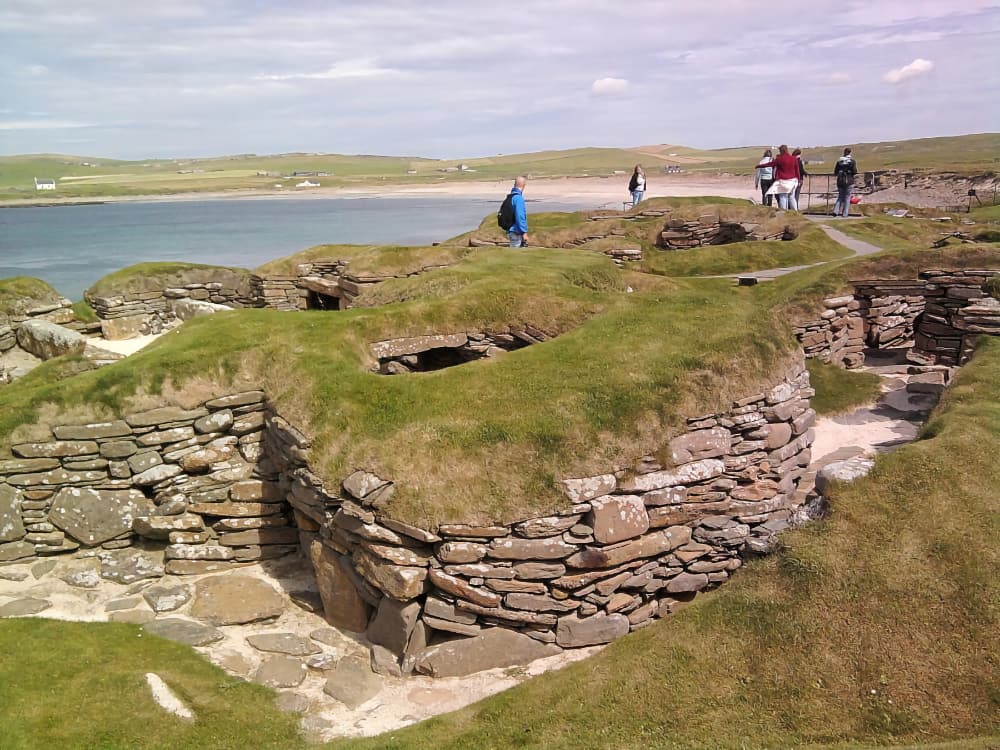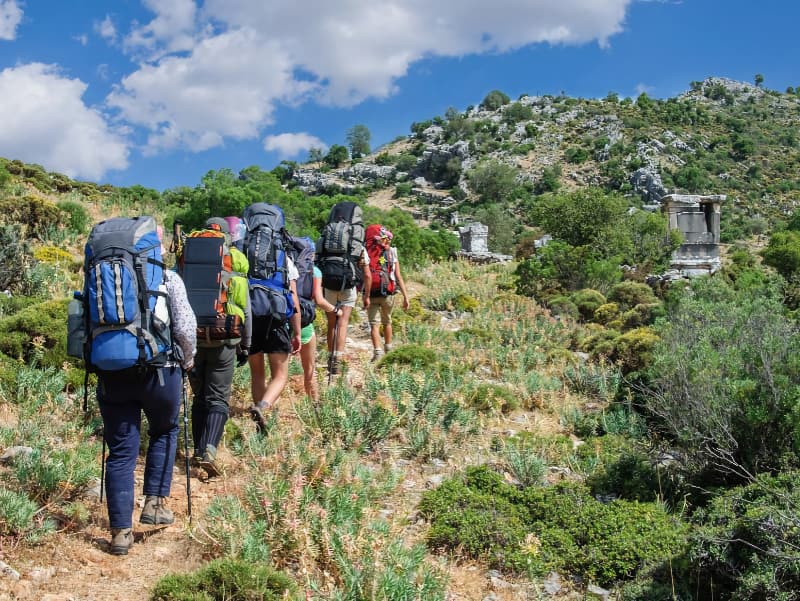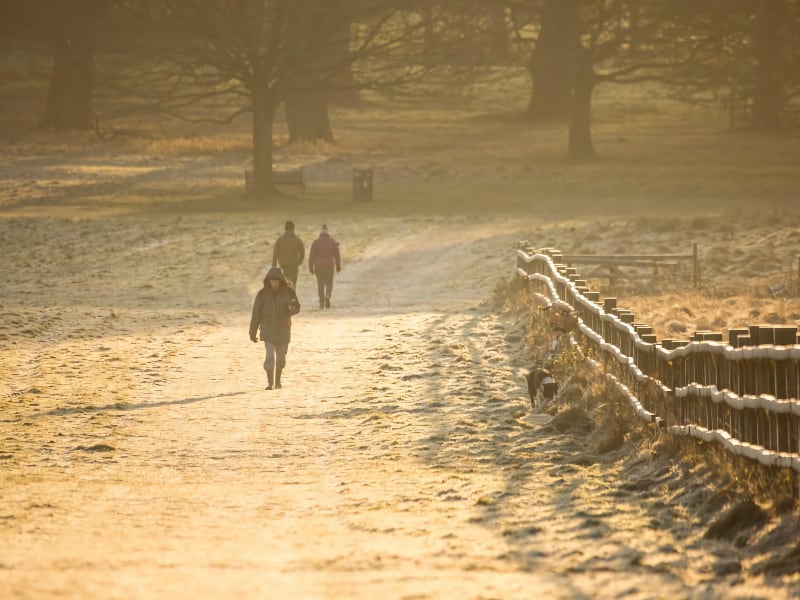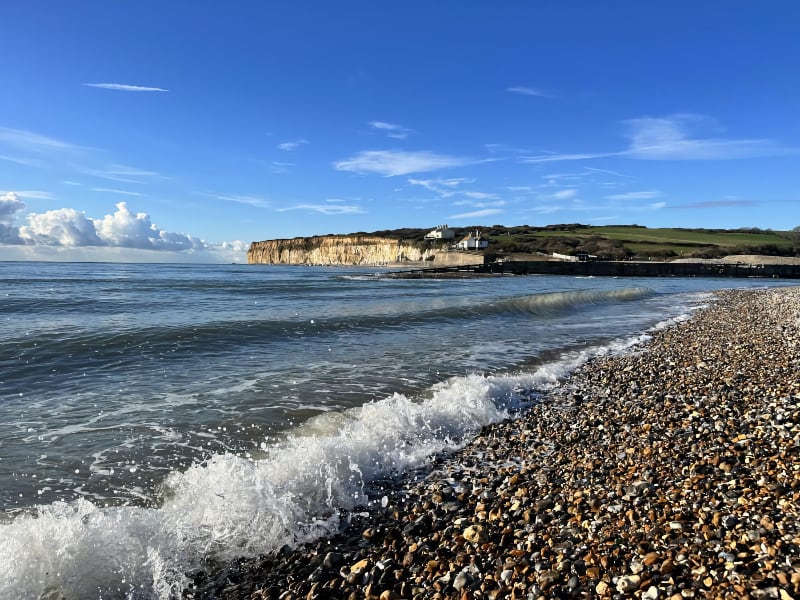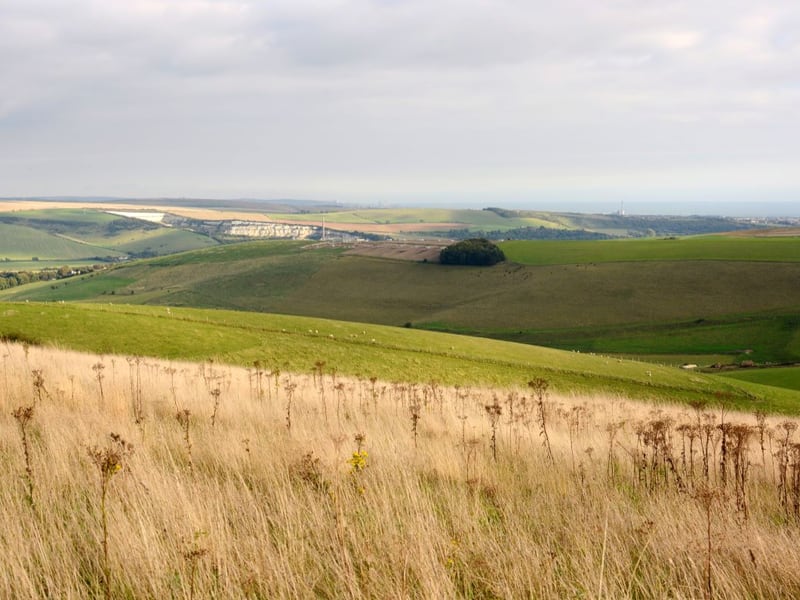For those who love embarking on hiking adventures across the UK countryside, car camping opens up a world of possibility. Using a vehicle as your accommodation, car camping gives you great flexibility for your outdoor excursions without the same limitations of a campsite, hotel or B&B.
This way, you can plan your route around the things you want to see and experience, rather than being tied to just one place. So pack your hiking boots, load up and hit the road – the UK’s finest trails await!

What is car camping?
While hiking and camping go hand in hand for many outdoor enthusiasts, conventional camping equipment like tents, sleeping bags and ground pads require you to set up and break down camp each time you change locations. Car camping eliminates the fuss by allowing you to sleep in your vehicle, using it as a basecamp that you can return to each night after a day exploring on foot.
Instead of searching for a camping spot and setting up all of your equipment, you simply park your car in a suitable area and sleep inside. You may also wish to adapt it to create an awning that allows you to spread out but without the need to set up a fresh campsite each time you stop.
Car camping appeals to those looking for an affordable and hassle-free way to spend time in nature. You can follow hiking trails or other points of interest for as long as you like, then simply return to your vehicle to rest for the night. Some people remove seats from their car to make space for a sleeping area, while others use the seats themselves or tents and bunks that attach to the vehicle’s roof. Car camping is an affordable and convenient way to enjoy nature, but comfort matters. Consider adding F-150 seat covers to your setup. These covers protect your seats and add comfort when you use them for sleeping. They make your car camping experience hassle-free and cozy, whether you sleep in the car or attach tents or bunks to the roof.
Is car camping legal?
Car camping does come with some legal considerations in the UK. Car camping is similar to wild camping, and you need permission from landowners to stay in many places around the country.
And, for longer stays, you will typically need to use a designated campsite or obtain permission from the landowner. Be sure to check local bylaws regarding where vehicle camping is allowed to avoid legal trouble and ensure you’re acting responsibly as a visitor in the area.
In England, Wales and Northern Ireland you must obtain permission from the landowner to camp in a car on public land for a single night. This is not only the considerate thing to do but it’s much safer and avoids confusion if the landowner finds you there without prior warning.
In Scotland, you can legally camp for one or two nights on most public land and private farmland as long as you act responsibly. However, your vehicle must not obstruct traffic or access for others.
Some key considerations for legal car camping:
- Do not light open fires if camping outside of an official campsite. Use a camping stove instead.
- Do not camp in groups larger than three vehicles in one spot. Move to a campsite for larger groups.
- Do not dump waste or litter. Take all rubbish and waste with you when you leave the area.
- Ask permission before camping on private farmland or in populated areas. Obtain permits if required for certain areas.
- Do not obstruct access for other vehicles, paths or gateways with your car or camping equipment.
How to prepare your car
To ensure you have a comfortable and enjoyable car camping trip, it’s important to properly prepare your motor. Give your motor a check before you set off to address any issues that could arise while you’re on the road or camping.
Check tyre pressure, fluid levels and ensure you have no warning lights indicating problems under the bonnet. It’s also a good idea to have your vehicle serviced if it’s close to needing its MOT or routine maintenance, as you don’t want to end up stranded with car trouble in a remote area.
Inside, make space for a sleeping area by folding down or removing seats. If you have a tesla model y interior you can have a comfortable sleep or else you can use use seat pads, mattress toppers or sleeping platforms for comfort. Don’t forget essentials like blankets, pillows, a sleeping bag, towels, a camping stove for cooking and mess kits for eating. Pack a first aid kit, maps, a torch, toiletries, baby wipes, hand sanitiser and toilet paper. Bring reusable bags, containers and bottles to minimise waste.
Using your car as a basecamp
One of the key benefits of car camping for hikers is using your vehicle as a movable basecamp. Rather than being limited to a relatively small area based on how far you can walk and carry your gear, you have the flexibility to relocate to different trailheads and points of interest.
Some people prefer to set up a basecamp at a campsite for a few nights and drive to different trails for a multi-day backpacking adventure. Others like to pack up their vehicle each morning and move to a new location to camp at night, using the car as transport between hikes.
Can you see more while car camping?
Having your vehicle as a basecamp allows you to be spontaneous and follow opportunities as they arise. If the weather takes a turn or you hear about a new trail, you can easily move to another spot, plus, you can choose locations based on the difficulty and length of hikes you want each day.
For example, you may start your trip by hiking coastal trails and camping by the sea Then after a couple of days, drive inland to climb peaks in the mountains and move on to explore a forest or national park.
Spontaneity is key and if a location doesn’t quite meet your expectations, simply pack up and move on. There’s no need to feel stuck if things don’t go according to plan and the open road brings a world of possibilities.
Explore like never before
Car camping offers hiking enthusiasts an affordable and convenient way to embark on exciting walking adventures across the UK’s scenic countryside. With the freedom to follow winding roads and mountain tracks wherever they lead, you can craft a custom trip to discover the natural beauty of the UK at your own pace.
What is car camping?
While hiking and camping go hand in hand for many outdoor enthusiasts, conventional camping equipment like tents, sleeping bags and ground pads require you to set up and break down camp each time you change locations. Car camping eliminates the fuss by allowing you to sleep in your vehicle, using it as a basecamp that you can return to each night after a day exploring on foot.
Instead of searching for a camping spot and setting up all of your equipment, you simply park your car in a suitable area and sleep inside. You may also wish to adapt it to create an awning that allows you to spread out but without the need to set up a fresh campsite each time you stop.
Car camping appeals to those looking for an affordable and hassle-free way to spend time in nature. You can follow hiking trails or other points of interest for as long as you like, then simply return to your vehicle to rest for the night. Some people remove seats from their car to make space for a sleeping area, while others use the seats themselves or tents and bunks that attach to the vehicle’s roof.
Is car camping legal?
Car camping does come with some legal considerations in the UK. Car camping is similar to wild camping, and you need permission from landowners to stay in many places around the country.
And, for longer stays, you will typically need to use a designated campsite or obtain permission from the landowner. Be sure to check local bylaws regarding where vehicle camping is allowed to avoid legal trouble and ensure you’re acting responsibly as a visitor in the area.
In England, Wales and Northern Ireland you must obtain permission from the landowner to camp in a car on public land for a single night. This is not only the considerate thing to do but it’s much safer and avoids confusion if the landowner finds you there without prior warning.
In Scotland, you can legally camp for one or two nights on most public land and private farmland as long as you act responsibly. However, your vehicle must not obstruct traffic or access for others.
Some key considerations for legal car camping:
- Do not light open fires if camping outside of an official campsite. Use a camping stove instead.
- Do not camp in groups larger than three vehicles in one spot. Move to a campsite for larger groups.
- Do not dump waste or litter. Take all rubbish and waste with you when you leave the area.
- Ask permission before camping on private farmland or in populated areas. Obtain permits if required for certain areas.
- Do not obstruct access for other vehicles, paths or gateways with your car or camping equipment.
How to prepare your car
To ensure you have a comfortable and enjoyable car camping trip, it’s important to properly prepare your motor. Give your motor a check before you set off to address any issues that could arise while you’re on the road or camping.
Check tyre pressure, fluid levels and ensure you have no warning lights indicating problems under the bonnet. It’s also a good idea to have your vehicle serviced if it’s close to needing its MOT or routine maintenance, as you don’t want to end up stranded with car trouble in a remote area.
Inside, make space for a sleeping area by folding down or removing seats. If you have a tesla model y interior you can have a comfortable sleep or else you can use use seat pads, mattress toppers or sleeping platforms for comfort. Don’t forget essentials like blankets, pillows, a sleeping bag, towels, a camping stove for cooking and mess kits for eating. Pack a first aid kit, maps, a torch, toiletries, baby wipes, hand sanitiser and toilet paper. Bring reusable bags, containers and bottles to minimise waste.
Using your car as a basecamp
One of the key benefits of car camping for hikers is using your vehicle as a movable basecamp. Rather than being limited to a relatively small area based on how far you can walk and carry your gear, you have the flexibility to relocate to different trailheads and points of interest.
Some people prefer to set up a basecamp at a campsite for a few nights and drive to different trails for a multi-day backpacking adventure. Others like to pack up their vehicle each morning and move to a new location to camp at night, using the car as transport between hikes.
Can you see more while car camping?
Having your vehicle as a basecamp allows you to be spontaneous and follow opportunities as they arise. If the weather takes a turn or you hear about a new trail, you can easily move to another spot, plus, you can choose locations based on the difficulty and length of hikes you want each day.
For example, you may start your trip by hiking coastal trails and camping by the sea Then after a couple of days, drive inland to climb peaks in the mountains and move on to explore a forest or national park.
Spontaneity is key and if a location doesn’t quite meet your expectations, simply pack up and move on. There’s no need to feel stuck if things don’t go according to plan and the open road brings a world of possibilities.
Explore like never before
Car camping offers hiking enthusiasts an affordable and convenient way to embark on exciting walking adventures across the UK’s scenic countryside. With the freedom to follow winding roads and mountain tracks wherever they lead, you can craft a custom trip to discover the natural beauty of the UK at your own pace.
What is car camping?
While hiking and camping go hand in hand for many outdoor enthusiasts, conventional camping equipment like tents, sleeping bags and ground pads require you to set up and break down camp each time you change locations. Car camping eliminates the fuss by allowing you to sleep in your vehicle, using it as a basecamp that you can return to each night after a day exploring on foot.
Instead of searching for a camping spot and setting up all of your equipment, you simply park your car in a suitable area and sleep inside. You may also wish to adapt it to create an awning that allows you to spread out but without the need to set up a fresh campsite each time you stop.
Car camping appeals to those looking for an affordable and hassle-free way to spend time in nature. You can follow hiking trails or other points of interest for as long as you like, then simply return to your vehicle to rest for the night. Some people remove seats from their car to make space for a sleeping area, while others use the seats themselves or tents and bunks that attach to the vehicle’s roof.
Is car camping legal?
Car camping does come with some legal considerations in the UK. Car camping is similar to wild camping, and you need permission from landowners to stay in many places around the country.
And, for longer stays, you will typically need to use a designated campsite or obtain permission from the landowner. Be sure to check local bylaws regarding where vehicle camping is allowed to avoid legal trouble and ensure you’re acting responsibly as a visitor in the area.
In England, Wales and Northern Ireland you must obtain permission from the landowner to camp in a car on public land for a single night. This is not only the considerate thing to do but it’s much safer and avoids confusion if the landowner finds you there without prior warning.
In Scotland, you can legally camp for one or two nights on most public land and private farmland as long as you act responsibly. However, your vehicle must not obstruct traffic or access for others.
Some key considerations for legal car camping:
- Do not light open fires if camping outside of an official campsite. Use a camping stove instead.
- Do not camp in groups larger than three vehicles in one spot. Move to a campsite for larger groups.
- Do not dump waste or litter. Take all rubbish and waste with you when you leave the area.
- Ask permission before camping on private farmland or in populated areas. Obtain permits if required for certain areas.
- Do not obstruct access for other vehicles, paths or gateways with your car or camping equipment.
How to prepare your car
To ensure you have a comfortable and enjoyable car camping trip, it’s important to properly prepare your motor. Give your motor a check before you set off to address any issues that could arise while you’re on the road or camping.
Check tyre pressure, fluid levels and ensure you have no warning lights indicating problems under the bonnet. It’s also a good idea to have your vehicle serviced if it’s close to needing its MOT or routine maintenance, as you don’t want to end up stranded with car trouble in a remote area.
Inside, make space for a sleeping area by folding down or removing seats. If you have a tesla model y interior you can have a comfortable sleep or else you can use use seat pads, mattress toppers or sleeping platforms for comfort. Don’t forget essentials like blankets, pillows, a sleeping bag, towels, a camping stove for cooking and mess kits for eating. Pack a first aid kit, maps, a torch, toiletries, baby wipes, hand sanitiser and toilet paper. Bring reusable bags, containers and bottles to minimise waste.
Using your car as a basecamp
One of the key benefits of car camping for hikers is using your vehicle as a movable basecamp. Rather than being limited to a relatively small area based on how far you can walk and carry your gear, you have the flexibility to relocate to different trailheads and points of interest.
Some people prefer to set up a basecamp at a campsite for a few nights and drive to different trails for a multi-day backpacking adventure. Others like to pack up their vehicle each morning and move to a new location to camp at night, using the car as transport between hikes.
Can you see more while car camping?
Having your vehicle as a basecamp allows you to be spontaneous and follow opportunities as they arise. If the weather takes a turn or you hear about a new trail, you can easily move to another spot, plus, you can choose locations based on the difficulty and length of hikes you want each day.
For example, you may start your trip by hiking coastal trails and camping by the sea Then after a couple of days, drive inland to climb peaks in the mountains and move on to explore a forest or national park.
Spontaneity is key and if a location doesn’t quite meet your expectations, simply pack up and move on. There’s no need to feel stuck if things don’t go according to plan and the open road brings a world of possibilities.
Explore like never before
Car camping offers hiking enthusiasts an affordable and convenient way to embark on exciting walking adventures across the UK’s scenic countryside. With the freedom to follow winding roads and mountain tracks wherever they lead, you can craft a custom trip to discover the natural beauty of the UK at your own pace.
What is car camping?
While hiking and camping go hand in hand for many outdoor enthusiasts, conventional camping equipment like tents, sleeping bags and ground pads require you to set up and break down camp each time you change locations. Car camping eliminates the fuss by allowing you to sleep in your vehicle, using it as a basecamp that you can return to each night after a day exploring on foot.
Instead of searching for a camping spot and setting up all of your equipment, you simply park your car in a suitable area and sleep inside. You may also wish to adapt it to create an awning that allows you to spread out but without the need to set up a fresh campsite each time you stop.
Car camping appeals to those looking for an affordable and hassle-free way to spend time in nature. You can follow hiking trails or other points of interest for as long as you like, then simply return to your vehicle to rest for the night. Some people remove seats from their car to make space for a sleeping area, while others use the seats themselves or tents and bunks that attach to the vehicle’s roof.
Is car camping legal?
Car camping does come with some legal considerations in the UK. Car camping is similar to wild camping, and you need permission from landowners to stay in many places around the country.
And, for longer stays, you will typically need to use a designated campsite or obtain permission from the landowner. Be sure to check local bylaws regarding where vehicle camping is allowed to avoid legal trouble and ensure you’re acting responsibly as a visitor in the area.
In England, Wales and Northern Ireland you must obtain permission from the landowner to camp in a car on public land for a single night. This is not only the considerate thing to do but it’s much safer and avoids confusion if the landowner finds you there without prior warning.
In Scotland, you can legally camp for one or two nights on most public land and private farmland as long as you act responsibly. However, your vehicle must not obstruct traffic or access for others.
Some key considerations for legal car camping:
- Do not light open fires if camping outside of an official campsite. Use a camping stove instead.
- Do not camp in groups larger than three vehicles in one spot. Move to a campsite for larger groups.
- Do not dump waste or litter. Take all rubbish and waste with you when you leave the area.
- Ask permission before camping on private farmland or in populated areas. Obtain permits if required for certain areas.
- Do not obstruct access for other vehicles, paths or gateways with your car or camping equipment.
How to prepare your car
To ensure you have a comfortable and enjoyable car camping trip, it’s important to properly prepare your motor. Give your motor a check before you set off to address any issues that could arise while you’re on the road or camping.
Check tyre pressure, fluid levels and ensure you have no warning lights indicating problems under the bonnet. It’s also a good idea to have your vehicle serviced if it’s close to needing its MOT or routine maintenance, as you don’t want to end up stranded with car trouble in a remote area.
Inside, make space for a sleeping area by folding down or removing seats. If you have a tesla model y interior you can have a comfortable sleep or else you can use use seat pads, mattress toppers or sleeping platforms for comfort. Don’t forget essentials like blankets, pillows, a sleeping bag, towels, a camping stove for cooking and mess kits for eating. Pack a first aid kit, maps, a torch, toiletries, baby wipes, hand sanitiser and toilet paper. Bring reusable bags, containers and bottles to minimise waste.
Using your car as a basecamp
One of the key benefits of car camping for hikers is using your vehicle as a movable basecamp. Rather than being limited to a relatively small area based on how far you can walk and carry your gear, you have the flexibility to relocate to different trailheads and points of interest.
Some people prefer to set up a basecamp at a campsite for a few nights and drive to different trails for a multi-day backpacking adventure. Others like to pack up their vehicle each morning and move to a new location to camp at night, using the car as transport between hikes.
Can you see more while car camping?
Having your vehicle as a basecamp allows you to be spontaneous and follow opportunities as they arise. If the weather takes a turn or you hear about a new trail, you can easily move to another spot, plus, you can choose locations based on the difficulty and length of hikes you want each day.
For example, you may start your trip by hiking coastal trails and camping by the sea Then after a couple of days, drive inland to climb peaks in the mountains and move on to explore a forest or national park.
Spontaneity is key and if a location doesn’t quite meet your expectations, simply pack up and move on. There’s no need to feel stuck if things don’t go according to plan and the open road brings a world of possibilities.
Explore like never before
Car camping offers hiking enthusiasts an affordable and convenient way to embark on exciting walking adventures across the UK’s scenic countryside. With the freedom to follow winding roads and mountain tracks wherever they lead, you can craft a custom trip to discover the natural beauty of the UK at your own pace.




